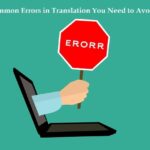We will know everything about the answer to the query what the legal translation in English is? In detail, through this blog post from the ATS blog.
Legal translation relates to the translation of any message utilized in the legal system. Because papers in use for legal reasons are usually needed to be presented in the official language of a relevant area, the term could indeed include a diverse range of texts, such as but not limited to witness statements, legal rulings as well as precedents, registered patents, transcripts, official reports, financial documents, and identity documentation. Many other data sources may also be subject to juridical translation, relying on their contextual relationship to judicial cases.
Contents
- 1 What is the legal translation in English?
- 2 What is included in legal translation?
- 3 What are the distinctions between legal translation and certified translation?
- 4 Do I need to consult a lawyer before obtaining legal translation services?
- 5 What are the prerequisites for legal translations?
- 6 What types of legal documents are available for translation?
What is the legal translation in English?
Legal translation is a broad field of specialized translation. It includes a variety of documents required by criminal law and civil structures.
Legal translations necessitate the use of qualified subject matter specialists. The translators must be well-versed in the legislation of both the target and source languages. Legal translations require a high level of precision. Based on the words used, legal texts can also have various meanings. As a result, legitimate translators must be familiar with legal speaking in both the target and source languages and local and cultural differences.
Are you aware of how difficult legal translation can be? The service necessitates a lot more than linguistic abilities from the legal translator near me in Dubai. They should be capable of correctly translating principles.
Legal English is typically lengthy and complex. The statutory text is frequently written in the passive voice, while most aim languages use the active voice. Judicial translators are licensed differently in each country. In some regions, they must have a legal translation degree and a business degree; in others, they must be certified by their state or federal courts.
Also Know: Translation Languages Services in Dubai
What is included in legal translation?

Legal translation encompasses a broad range of sectors. The following are some of the most prevalent kinds of translation:
Contract interpretation
Contracts underpin nearly everything a company does. Contract translation is critical for protecting clients and businesses from deleterious legal ramifications. Contracts for domestic or international trade, tenancy agreements, real estate documents, work contracts, or other documents fall into this category.
Design and technology
Another crucial component of legal translation is copyright translation. Ensuring that your intellectual property rights are safeguarded in technology and design is critical.
Marketing
Marketing is an essential aspect of any business, but there are a few differences when attempting to promote to a new audience. This implies that you should hire an adequately trained translator to try advertising in different countries. A marketing department is only as lovely as the data it is provided.
Translation of a certificate
Certificate translations, as previously stated, are critical. If you would like to work in a foreign country, your certificates must be translated and organized for your region. Certificate translations are frequently required to be certified. Certified translations indicate that the translator has completed a precise and committed translation of the certificates.
Also Know: Legal translation service to trust
What are the distinctions between legal translation and certified translation?
Numerous folks need clarification on the distinction between certified and legal translations, but some believe the two are interchangeable. The reality is that there are distinctions between these two kinds of translation services.
Legal interpretation
Legal translation entails translating text from court papers, which lawyers and legal experts frequently prepare. This includes among other things, court and witness transcripts, depositions, lawful disclaimers, court documents, regulations, regulations, government and legal ruling reports, lawful certifications and declarations, technical papers to support litigation attempts, and litigation, as well as arbitration files.
Certified translation
Certified translation, which could include legal, scientific, literary, or technical content, is needed when the translation should be presented to an entity or organization that requires a certificate evidencing the precision of the translation. It is marked and signed by either the translator or the translation corporation.
Also, know: who can legally translate a document?
Do I need to consult a lawyer before obtaining legal translation services?
Legal translation services do not require the presence of a litigator. If you intend to submit legal documents to organizations that necessitate all papers to be written in their language, you will need the assistance of a legal translator.
A judicial translator is a linguist who specializes in legal issues. The translator could be an individual with lawful experience and knowledge of legal terminology. Some could focus on banking and finance legislation, corporate law, commercial law, family court translation services, crime, legal code, and media law.
What are the prerequisites for legal translations?

Because legal translation is so critical, all legal translations are strictly regulated. Many legal translations are sworn translations. Sometimes this is referred to as a certified translation, in which an expert translator with language credentials promises that the translation is accurate and true to the document.
Obtaining a certified translation is critical because even minor translation flaws could cause significant legal issues.
Anybody who provides legal translation services ought to be a top-tier linguist. Overall, the best translations come from someone translating the text into their native language.
Also Know: Why legal translation is essential in Dubai
What types of legal documents are available for translation?
A legal translator could translate almost any document. Numerous documents are available to assist businesses in understanding the legal aspects of their international relationships with other countries, guiding business decisions, or helping marketing departments make the right marketing decisions – all of which may assist a global brand in avoiding legal problems while working in a foreign nation.
Understandably, businesses want to avoid legal action being taken against their sales teams, marketing teams, or product designers. This is why having the legal support of a qualified lawful translator can be highly beneficial to various industries.
In closing
We discovered everything about the legal translation in English in detail through these previous points, and we hope you like it too much, dear.
Feel free to contact us if you need additional information.



